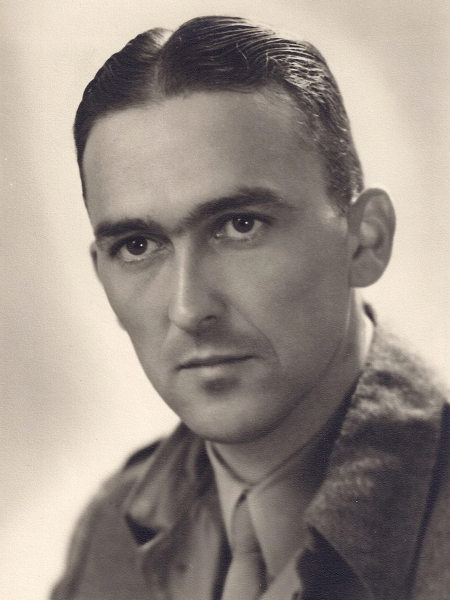Pelt, van, Markus (Max)
- Date of birth:
- July 31st, 1916 (Dordrecht/Zuid-Holland, the Netherlands)
- Date of death:
- August 27th, 1981 (Den Haag/Zuid-Holland, the Netherlands)
- Nationality:
- Dutch
Biography
Van Pelt was a member of the resistance in Dordrecht and one of the first members of the OD (Dutch Resistance Organisation). This led to his arrest in 1941 on charges of spying against Germany. After being released due to lack of evidence, he founded the 17th Division in Dordrecht. This organisation focused primarily on helping people in hiding and poor families, and on stockpiling weapons and medicines for the resistance. Van Pelt supported all resistance groups that asked for help with weapons, clothing, food and whatever else he could spare.
In the final months of the war, the German “Weerwolf” stay-behind organisation became active in Dordrecht. With the consent of Pieter “Paul” Kooiman, district commander of the Internal Armed Forces, Van Pelt infiltrated this organisation in March 1945. After the liberation, the resistance forced Van Pelt to hand over the German transmitter in his possession for unclear reasons. However, this was intended to keep track of German activities after the war.
This was the beginning of a sordid affair in which the notorious Harry Evers played a role. During the occupation, Evers was an agent with the Dordrecht political police and a Jew hunter who, as the war progressed, increasingly played a double role. Initially, he seemed to get away with it and even acquired a position within the Political Investigation Service. For unclear reasons, the leaders of the Dordrecht resistance continued to protect Evers. It has been suggested that they were susceptible to blackmail, but there is no hard evidence to support this.
Van Pelt strongly opposed this by distributing a pamphlet in July 1945 in which he denounced this situation. As a result, he was arrested by other former resistance members on the basis of false accusations of collaboration and was unjustly imprisoned for more than six months. He was released in January 1946 and later fully rehabilitated.
After the war, he resumed his job as a teacher and became politically active for the PSP as a member of the Senate and the Provincial Council. In 1984, he received the Resistance Memorial Cross.
The Max van Pelt Foundation, named after him, continues to seek the truth about the resistance in Dordrecht and the reasons why some members of the resistance continued to support Harry Evers through thick and thin.
In 2022, the book “De Dordtse Affaire” (The Dordrecht Affair) was published, which discusses in detail the role of Evers and the events surrounding Max van Pelt.
Do you have more information about this person? Inform us!
- Period:
- Second World War (1939-1945)
- Awarded on:
- July 31st, 1950
- Period:
- Second World War (1939-1945)
- Awarded on:
- March 23rd, 1984




